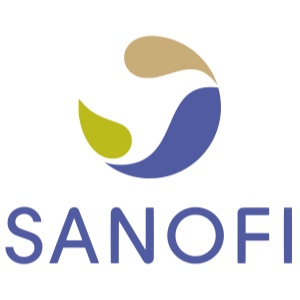BEYFORTUS® reduced hospital and doctor visits for RSV disease in babies by 87%, according to largest US real-world study
Rhea-AI Summary
Sanofi (NYSE:SNY) announced groundbreaking real-world study results for BEYFORTUS®, showing an 87% reduction in RSV disease cases across all care sites among healthy, term babies. The largest US real-world study demonstrated a remarkable 98% reduction in RSV hospitalizations compared to untreated infants.
The study, published in PEDIATRICS®, successfully met both co-primary endpoints. Beyond disease prevention, BEYFORTUS-treated infants who contracted RSV showed significantly fewer medical visits. The research included over 30,000 healthy, full-term babies, supporting previous findings from pivotal trials where BEYFORTUS showed 74.9% and 70.1% relative risk reductions in serious RSV disease.
Positive
- None.
Negative
- Limited adverse reactions reported: rash (0.9%) and injection site reactions (0.3%)
- Study limitations included supply constraints due to high demand
- Some babies potentially exposed to RSV prior to BEYFORTUS deployment
News Market Reaction – SNY
On the day this news was published, SNY gained 1.71%, reflecting a mild positive market reaction.
Data tracked by StockTitan Argus on the day of publication.
87% reduction in cases of respiratory syncytial virus (RSV) disease across all sites of care among healthy, term babies, born ahead of or during the RSV season98% reduction in hospitalizations of babies with RSV compared to those who did not get BEYFORTUS, per new post-hoc analysis
The study, conducted during the 2023-2024 RSV season, further supports the broad use of BEYFORTUS as a proven RSV prevention designed to protect all infants, including those born healthy or with underlying conditions, full term or preterm, before or during the RSV season. BEYFORTUS is a long-acting monoclonal antibody approved for the prevention of RSV lower respiratory tract disease (LRTD) in newborns and infants born during or entering their first RSV season, and for children up to 24 months of age who remain vulnerable to severe RSV disease through their second RSV season.
Ayman Chit
Head of North America Medical, Vaccines, Sanofi
"These results support BEYFORTUS as a groundbreaking advancement in infant RSV disease prevention. With more than 40 real-world evidence studies to date, this latest study further strengthens the well-established body of data that shows that BEYFORTUS provides protection against RSV disease to help safeguard the health of all babies, regardless of whether they are born before or during the RSV season."
The first co-primary endpoint showed babies administered BEYFORTUS were
Additionally, a post hoc analysis of the study evaluated the effectiveness of BEYFORTUS in preventing RSV hospitalizations among healthy term babies. Using real-world data from a retrospective cohort design, researchers compared hospitalization rates between babies who received BEYFORTUS and those who did not. The analysis demonstrated a
The study was a large, real-world, retrospective cohort analysis that included more than 30,000 healthy, full-term babies who were eligible to receive BEYFORTUS. The study excluded babies at high risk for severe RSV disease such as those with underlying medical conditions or those born preterm, allowing for a clear evaluation of the impact of BEYFORTUS in the broader infant population.
The study further builds on the body of US real-world evidence demonstrating the high impact of BEYFORTUS. A prospective, population-based surveillance study published in JAMA Pediatrics showed a single dose of BEYFORTUS was
Prior to these US real-world studies, BEYFORTUS was evaluated in two pivotal trials. BEYFORTUS efficacy and safety were evaluated in two randomized, double-blind, placebo-controlled pivotal trials with the same primary and secondary endpoints versus placebo through 150 days post one dose: incidence of medically attended (includes all healthcare provider visits such as physician's office, urgent care, emergency room, and hospitalizations) RSV disease, including hospitalization.
BEYFORTUS significantly reduced the risk of serious RSV disease in term and late preterm healthy infants:
- In Trial 04, BEYFORTUS demonstrated a relative risk reduction of
74.9% (95% CI: 50.6, 87.3; p<0.001). n=1,490 infants ≥35 wGA (placebo:5.0% [25/496], BEYFORTUS:1.2% [12/994]). BEYFORTUS dose: 50 mg for <5 kg; 100 mg for ≥5 kg - In Trial 03, BEYFORTUS demonstrated a relative risk reduction of
70.1% (95% CI: 52.3, 81.2; p<0.001). n=1,453 infants ≥29 to <35 wGA (placebo:9.5% [46/484], BEYFORTUS:2.6% [25/969]). BEYFORTUS dose: 50 mg regardless of weight
In both studies, the secondary endpoint was the incidence of serious RSV disease with hospitalization in term and preterm healthy babies through 150 days post one dose:
- In Trial 04, BEYFORTUS demonstrated a relative risk reduction of
60.2% (95% CI: -14.6, 86.2; p=0.09). Primary Cohort: n=1,490 infants ≥35 wGA (placebo:1.6% [8/496], BEYFORTUS:0.6% [6/994])- In an exploratory, post hoc analysis of all infants (full study cohort) in Trial 04, BEYFORTUS demonstrated a relative risk reduction of
76.8% (95% CI: 49.4, 89.4). n=3,012 infants ≥35 wGA (placebo:2.0% [20/1,003], BEYFORTUS:0.4% [9/2,009])
- In an exploratory, post hoc analysis of all infants (full study cohort) in Trial 04, BEYFORTUS demonstrated a relative risk reduction of
- In Trial 03, BEYFORTUS demonstrated a relative risk reduction of
78.4% (95% CI: 51.9, 90.3; p=0.0002). n=1,453 infants ≥29 to <35 wGA (placebo:4.1% [20/484], BEYFORTUS:0.8% [8/969])
The most common adverse reactions in Trial 04 and Trial 03 were rash (
About RSV
RSV is a highly contagious virus that can lead to serious respiratory illness for infants. Two out of three infants are infected with RSV during their first year of life and almost all children are infected by their second birthday. Most of the time RSV will cause a mild, cold-like illness. However, RSV is the most common cause of LRTD, including bronchiolitis and pneumonia, in infants. RSV LRTD is the leading cause of hospitalization in babies under one, with most hospitalizations for RSV occurring in healthy infants born at term. Each year in the US, an estimated 590,000 RSV cases in babies under one require medical care, including physician office, urgent care, emergency room visits and hospitalizations.
About BEYFORTUS
BEYFORTUS is a single-dose long-acting antibody designed to help prevent RSV LRTD in infants that extends through five months, the length of the typical RSV season in the US. For children undergoing cardiac surgery with cardiopulmonary bypass, an additional dose of BEYFORTUS is recommended as soon as the child is stable after surgery. An additional dose of BEYFORTUS is also indicated for children up to 24 months of age, regardless of body weight, who remain vulnerable to severe RSV disease through their second RSV season.
As a long-acting antibody provided directly to newborns and infants as a single dose, BEYFORTUS offers fast-acting protection to help prevent lower respiratory tract disease caused by RSV without requiring activation of the immune system. It has demonstrated a consistent safety profile across a broad infant population. BEYFORTUS administration can be timed to coincide with the RSV season.
BEYFORTUS has been approved for use in the US, the European Union,
INDICATION
BEYFORTUS is a prescription medicine used to help prevent a serious lung disease caused by Respiratory Syncytial Virus (RSV) in:
- Newborns and babies under 1 year of age born during or entering their first RSV season.
- Children up to 24 months of age who remain at risk of severe RSV disease through their second RSV season.
IMPORTANT SAFETY INFORMATION
Your child should not take BEYFORTUS if your child has a history of serious allergic reactions to nirsevimab-alip or any of the ingredients in BEYFORTUS.
Before your child receives BEYFORTUS, tell your healthcare provider about all of your child's medical conditions, including if your child:
- has ever had a reaction to BEYFORTUS.
- has bleeding or bruising problems. If your child has a problem with bleeding or bruises easily, an injection could cause a problem.
Tell your healthcare provider about all the medicines your child takes, including prescription and over-the-counter medicines, vitamins, and herbal supplements. Your infant should not receive a medicine called palivizumab if they have already received BEYFORTUS in the same RSV season.
Serious allergic reactions have happened with BEYFORTUS. Get medical help right away if your child has any of the following signs or symptoms of a serious allergic reaction:
- swelling of the face, mouth, or tongue
- difficulty swallowing or breathing
- unresponsiveness
- bluish color of skin, lips, or under fingernails
- muscle weakness
- severe rash, hives, or itching
The most common side effects of BEYFORTUS include rash and pain, swelling, or hardness at the site of your child's injection. These are not all the possible side effects of BEYFORTUS. Call your healthcare provider if you have questions about side effects.
Please see full Prescribing Information, including Patient Information, for more details.
MAT-US-2504102-v1.0-04/2025
About Sanofi
Sanofi is an R&D driven, AI-powered biopharma company committed to improving people's lives and delivering compelling growth. We apply our deep understanding of the immune system to invent medicines and vaccines that treat and protect millions of people around the world, with an innovative pipeline that could benefit millions more. Our team is guided by one purpose: we chase the miracles of science to improve people's lives; this inspires us to drive progress and deliver positive impact for our people and the communities we serve, by addressing the most urgent healthcare, environmental, and societal challenges of our time.
Sanofi is listed on EURONEXT: SAN and NASDAQ: SNY
Media Relations
Sandrine Guendoul | +33 6 25 09 14 25 | sandrine.guendoul@sanofi.com
Evan Berland | +1 215 432 0234 | evan.berland@sanofi.com
Timothy Gilbert | +1 516 521 2929 | timothy.gilbert@sanofi.com
Investor Relations
Thomas Kudsk Larsen |+44 7545 513 693 | thomas.larsen@sanofi.com
Alizé Kaisserian | +33 6 47 04 12 11 | alize.kaisserian@sanofi.com
Felix Lauscher | +1 908 612 7239 | felix.lauscher@sanofi.com
Keita Browne | +1 781 249 1766 | keita.browne@sanofi.com
Nathalie Pham | +33 7 85 93 30 17 | nathalie.pham@sanofi.com
Tarik Elgoutni | +1 617 710 3587 | tarik.elgoutni@sanofi.com
Thibaud Châtelet | +33 6 80 80 89 90 | thibaud.chatelet@sanofi.com
Yun Li | +33 6 84 00 90 72 | yun.li3@sanofi.com
Sanofi forward-looking statements
This press release contains forward-looking statements as defined in the Private Securities Litigation Reform Act of 1995, as amended. Forward-looking statements are statements that are not historical facts. These statements include projections and estimates and their underlying assumptions, statements regarding plans, objectives, intentions, and expectations with respect to future financial results, events, operations, services, product development and potential, and statements regarding future performance. Forward-looking statements are generally identified by the words "expects", "anticipates", "believes", "intends", "estimates", "plans" and similar expressions. Although Sanofi's management believes that the expectations reflected in such forward-looking statements are reasonable, investors are cautioned that forward-looking information and statements are subject to various risks and uncertainties, many of which are difficult to predict and generally beyond the control of Sanofi, that could cause actual results and developments to differ materially from those expressed in, or implied or projected by, the forward-looking information and statements. These risks and uncertainties include among other things, the uncertainties inherent in research and development, future clinical data and analysis, including post marketing, decisions by regulatory authorities, such as the FDA or the EMA, regarding whether and when to approve any drug, device or biological application that may be filed for any such product candidates as well as their decisions regarding labelling and other matters that could affect the availability or commercial potential of such product candidates, the fact that product candidates if approved may not be commercially successful, the future approval and commercial success of therapeutic alternatives, Sanofi's ability to benefit from external growth opportunities, to complete related transactions and/or obtain regulatory clearances, risks associated with intellectual property and any related pending or future litigation and the ultimate outcome of such litigation, trends in exchange rates and prevailing interest rates, volatile economic and market conditions, cost containment initiatives and subsequent changes thereto, and the impact that global crises may have on us, our customers, suppliers, vendors, and other business partners, and the financial condition of any one of them, as well as on our employees and on the global economy as a whole. The risks and uncertainties also include the uncertainties discussed or identified in the public filings with the SEC and the AMF made by Sanofi, including those listed under "Risk Factors" and "Cautionary Statement Regarding Forward-Looking Statements" in Sanofi's annual report on Form 20-F for the year ended December 31, 2024. Other than as required by applicable law, Sanofi does not undertake any obligation to update or revise any forward-looking information or statements.
All trademarks mentioned in this press release are the property of the Sanofi group.
![]() View original content:https://www.prnewswire.com/news-releases/beyfortus-reduced-hospital-and-doctor-visits-for-rsv-disease-in-babies-by-87-according-to-largest-us-real-world-study-302510941.html
View original content:https://www.prnewswire.com/news-releases/beyfortus-reduced-hospital-and-doctor-visits-for-rsv-disease-in-babies-by-87-according-to-largest-us-real-world-study-302510941.html
SOURCE Sanofi






